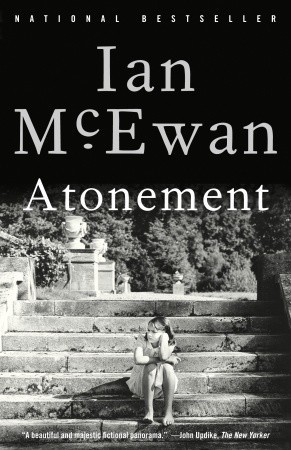What do you think?
Rate this book


351 pages, Paperback
First published September 20, 2001
Here she was, offering a possibility of absolution. But it was not for him. He had done nothing wrong. It was for herself, for her own crime which her conscience could no longer bear. Was he supposed to feel grateful? And yes, of course, she was a child in 1935. He had told himself, he and Cecilia had told each other, over and again. Yes, she was just a child. But not every child sends a man to prison with a lie. Not every child is so purposeful and malign, so consistent over time, never wavering, never doubted. A child, but that had not stopped him daydreaming in his cell of her humiliation, of a dozen ways he might find revenge.

“There did not have to be a moral. She need only show separate minds, as alive as her own, struggling with the idea that other minds were equally alive. It wasn't only wickedness and scheming that made people unhappy, it was confusion and misunderstanding, above all, it was the failure to grasp the simple truth that other people are as real as you. And only in a story could you enter these different minds and show how they had an equal value. That was the only moral a story need have.”
“But hidden drawers, lockable diaries and cryptographic systems could not conceal from Briony the simple truth: she had no secrets. Her wish for a harmonious, organised world denied her the reckless possibilities of wrongdoing. Mayhem and destruction were too chaotic for her tastes, and she did not have it in her to be cruel. Her effective status as an only child, as well as the relative isolation of the Tallis house, kept her, at least during the long summer holidays, from girlish intrigues with friends. Nothing in her life was sufficiently interesting or shameful to merit hiding; no one knew about the squirrel's skull beneath her bed, but no one wanted to know.”
“Now he reduced his progress to the rhythm of his boots -- he walked across the land until he came to the sea. Everything that impeded him had to be outweighed, even if only by a fraction, by all that drove him on. ...He knew by heart certain passages from her letters, he had revisited their tussle with the vase by the fountain, he remembered the warmth from her arm at the dinner when the twins went missing. These memories sustained him, but not so easily.”But what rots and sustains him is his hate for Briony:
“In that shrinking moment he discovered that he had never hated anyone until now. It was a feeling as pure as love, but dispassionate and icily rational.”Above everything:
“Let his name be cleared and everyone else adjust their thinking. He had put in time, now they must do the work. His business was simple. Find Cecilia and love her, marry her and live without shame.”The ability of McEwan is very well known, but in Atonement he arrived were he had not reached before and where few living authors – maybe Coetzee, Philip Roth and a few others – were able to arrive. The force of his narrative comes from its plot and its magnitude as well as from its richness and structure. The story is strong, but who narrates is not subservient to its hierarchy and its rhythm: it’s a subject that lets it flow and, at the same time, chooses the moments and the way to reveal its parts. McEwan does not need to resort to fragmentation and mysticism to deal with the battle between affection and speech, tolerance and freedom, a clash so in evidence nowadays.


